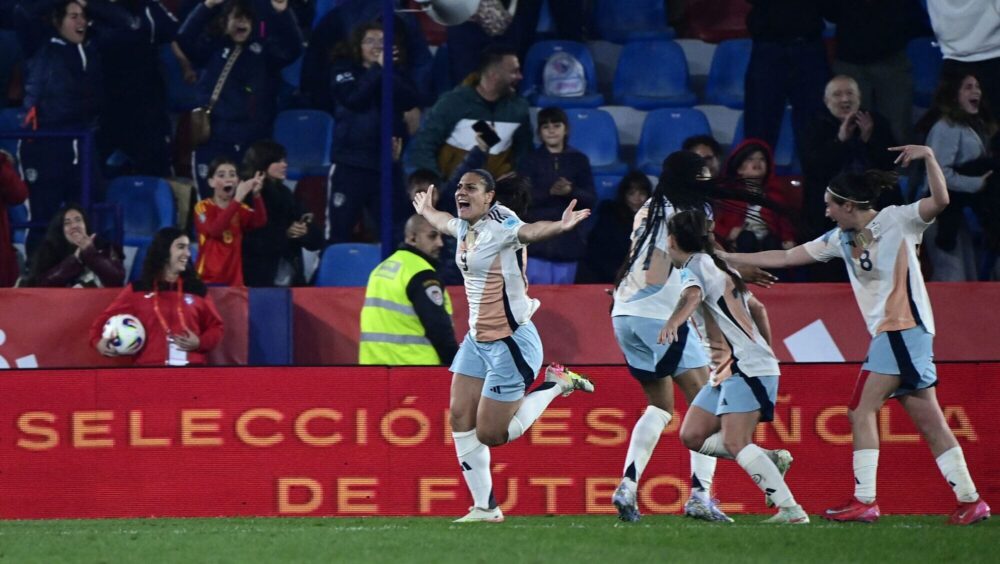
Spain’s forward #09 Cristina Martin-Prieto (L) celebrates scoring her team’s third goal at the end of the UEFA Women’s Nations League group A3 football match between Spain and Belgium
JOSE JORDAN / AFP
Who would have thought that in Spain’s first professional women’s football league it would be the players themselves asking to be refereed by men? Apparently, they are doing so not out of nostalgia for bygone times, or because they are antifeminists, but because they simply believe that men are better prepared.
The Spanish Liga F was launched three years ago with high aspirations. It was presented as a historic breakthrough for women’s sports and a social experiment with symbolic value. Among the measures introduced at the outset one of the most striking was the exclusion of male referees: all matches would be officiated exclusively by women. The goal was to give women access to a field where historically they have had little presence. In practice, this often meant sidelining more experienced referees simply for being men.
The decision was praised at the time by sports bodies and the media alike. It was considered a bold step necessary to give female referees visibility and promote their development. But the league’s rapid growth soon exposed the limits of that approach. As Liga F professionalized, its visibility grew, attracting more sponsors, top-level players, and international attention. However, the level of refereeing, shaped by a gender-based exclusion policy, has not always lived up to the standards of a league aiming to compete with the best in the world.
According to Mundo Deportivo, Liga F and the Spanish Football Federation—through the Technical Committee of Referees—are now considering allowing male referees back in. Interestingly, this isn’t being done out of institutional conviction but at the request of those who might be expected to defend the current model: the players. FC Barcelona goalkeeper Cata Coll said,
The best should referee us; it doesn’t matter if they’re men or women. Isn’t that how it works with the men? Then the same should apply.
Speakers for Liga F said they want to respond to the demands of clubs, players, and coaches to achieve the best possible refereeing system, regardless of gender.
It seems that common sense has prevailed over the fixation with gender quotas, at least in the women’s soccer league in Spain, affirming that what matters is not who holds the whistle but whether they know how to use it.
